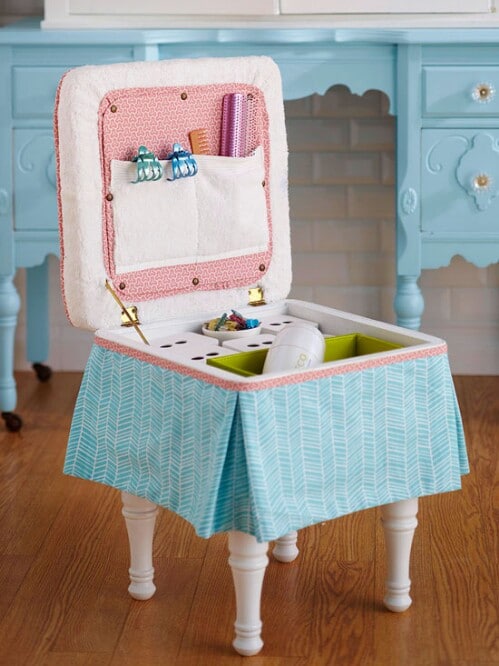Epoxy is a durable adhesive often used on countertops for its strong, long-lasting finish. However, removing it can be challenging, especially if you’re doing it for the first time. With the right process, though, it can be done effectively and without much hassle.
Although it might initially seem tricky, removing epoxy resin from a quartz countertop is quite easy once you know how. So, if you want to keep your quartz countertop gleaming as new for years to come, here are some tips to follow. We will guide you through the step-by-step process.

Benefits of Choosing Quartz Countertops
There are several reasons why someone would opt for epoxy. Here are a few reasons why:
It Is Durable
Quartz countertops are highly durable and, therefore, a long-term interior investment. You can use them in your kitchen for years to come. They provide a lot of space without the risk of damaging the surface.
It Is Affordable To Maintain
The quartz countertops contain 90% natural quartz, making them anti-porous and scratch-resistant. So, if there is a wine, oil, or juice spillage, it is clean and wiped off quickly. You won’t need to worry about marks and dulled surfaces.
It Is Versatile
Quartz comes in a variety of designs and patterns and can easily mimic natural stone countertops like marble and granite.
It Has Antibacterial Properties
Quartz is antibacterial because it is non-porous. Keeping it sanitary and glossy for long-term use requires no exclusive maintenance tips.
What is Epoxy Resin?
Epoxy resin is great for bonding and fixing things on surfaces but can be messy if not used carefully. Once it cures, epoxy becomes hard and firmly set, making it much harder to remove spills.
Please note that using some of the products listed below may result in homeowners voiding the warranty on their quartz countertop. It’s always best to consult the manufacturer before choosing a cleaning product. As well, premium quartz brands like Caesarstone strongly advise against ever using epoxy on quartz.
How to Remove Epoxy From Quartz Countertops if Uncured?
If the resin is still fresh and uncured, you can use isopropyl alcohol to remove it. Isopropyl alcohol works well on epoxy spills and can help eliminate them completely.
If you don’t have isopropyl alcohol at home, acetone is another effective alternative.
How to Remove Epoxy From Quartz Countertops if Cured?
Cured epoxy resin is difficult to clean as it dries to a durable solid surface. Fortunately, using the right tools and solutions can help you learn how to remove epoxy resin once cured. Here are some options if the epoxy is cured:
Epoxy Remover
Special epoxy removal products are made to help you remove resin spills. They are highly effective against glue, epoxy, silicone caulk, oil, ink, etc.
These are cleaners that professionals use to remove sticky and stubborn messes from surface areas. If you want a no-mess clean-up, try the epoxy resin remover sprays that stick to the surface and do not drip over to other areas.
You can use these no-nonsense removers on the quartz surface without damaging the countertop.
Putty Knives
If you have a big glob of epoxy resin on your quartz countertop from an art project, try the putty knife technique. Choose good-quality carbon steel blades that can scrape off hardened epoxy build-ups without scratching the quartz surface.
It is every handyman’s tool for renovating installations and fixing interior decor. These are also very durable and can help you for years to come with epoxy resin messes.
Spraytech Heat Gun
Since quartz is heat resistant, you can use a heat gun to melt off epoxy resin build-up and then use isopropyl alcohol to remove the uncured resin.
Quartz can withstand around 150°, so make sure to use the setting with the lowest temperature. It can also remove epoxy bubbles from your quartz countertops. Anything higher can damage the countertop.
What Not to Use on a Quartz Countertop
Quartz’s non-porous surface makes it one of the most sought-after countertops. It is easy to clean, an excellent long-term investment, and can beautify your interiors.
However, cleaning and maintaining it with the right solutions is advisable as it is prone to damage otherwise.
Abrasive Fabrics And Sponges
Wired sponges and abrasive fabrics can harm quartz surfaces. They are most important for cleaning metals and can be harsh on this dewy, gleaming countertop.
Moreover, it can make the quartz surface look dull and worn out within a few uses. Instead, use softer fabrics and materials to clean up epoxy resin build-up. You can use these materials to apply and rub isopropyl alcohol over the epoxy, as quartz does not need scrubbing.
Bleach
Bleach can remove epoxy build-ups and loosen the bond between the resin and the quartz bond on the surface, so be careful not to use it to clean quartz surfaces.
Alkaline Cleaners
Try to keep away acidic or highly alkaline solutions from quartz countertops. If you wish to clean the countertop after removing an epoxy build-up, use soaps with pH values between 5 and 8.
Wrong Knives
As mentioned, putty knives are the best for scraping anything off a quartz countertop. However, sharper knives can hull the surface, creating a very unaesthetic look. So when scraping off the dried epoxy resin, only putty knives over quartz countertops are used.






